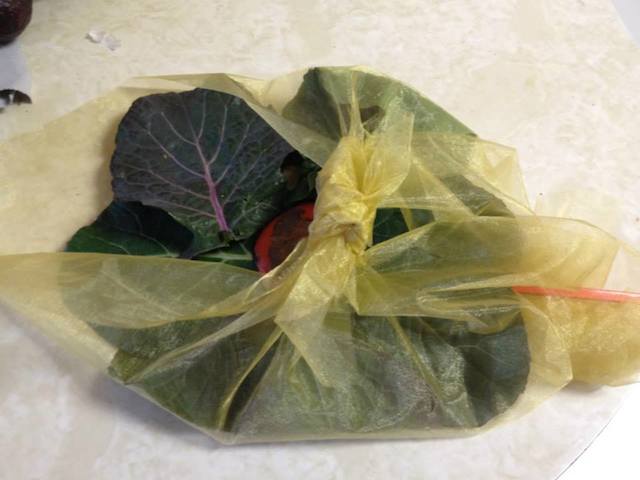Welcome to January! I started this entry with some panic: I needed a Word For The Year. I’ve been using these lately, instead of New Year’s resolutions, as a rough compass for each year, for each place where I’m unsure. Should I do X or Y? I would feed the question to the Word of the Year Magic 8-ball, and see what emerges. Last year’s word was REACH.
Why the panic? I haven’t written a blog post since November of last year. “Don’t panic,” Josh advises in his FB chat to me. “You have to have a Day One [back to writing] that sucks. Make today Day One and get on with it.”
*****
This year I am feeling the need for a different direction, away from achievement-focused pressure. My neurons are zinging too much on the pressure to achieve, to have a clean and uncluttered house, to make from-scratch nutritious meals and snacks for myself and my family. As if those two parts of homemaking were not enough work and commitment in and of themselves (if I’m not achieving in some public workplace, then I am going to out-Martha-Martha at home!), I am feeling the need to achieve more with my writing. And I think that need is actually hurting the writing itself.
Here, again, are the voices: the voices that berate me for going away from the book for so long. Some vaguely Catholic part of me still wants to confess to someone, ask to be forgiven. There’s the voice that suggests I go back to something with more tangible results, like baking or cooking. Seductive, those last two activities. There’s the voice that suggests I check my e-mail, Twitter feed, number of red dot responses on my Facebook account. There’s the fear and the self-flagellation: the I haven’t done anything yet,the self-accusations of laziness. Is that what I’m worried about the most? That someone will accuse me of being lazy? Sadly, the worst voices are all my own.
I have come to see that these voices are part of the process, coming to terms with the choice that I made—or rather that Josh and I made, together, for me to be home more and not to work outside it full-time, not to reenter the academy as an adjunct professor, not to work just for the income. I know. This is a luxury. But it’s also a balancing act.
When I say I have had to detox from academic life, this is part of what I am talking about: a relentless pressure to achieve and perform for an audience. I am not saying that every academic feels this pressure. But it is certainly how I came to academic life, how I experienced academic life, and (in part) why I left it.
*****
Here, then, the latest writing news. One of my blog posts (“How’s the writing going?”) was selected as a top pick for 2013 by the good folks at The Author Chronicles. I have just published a review of a book by Chang-Rae Lee, a writer I have long admired. I have just published an essay in Edible Seattle, a food magazine that appears on the newsstand at the grocery store. If you live in the Seattle area, please pick up a copy and support us. Turn to the back, just inside the cover page: that’s me.
Tempering the achievements is also rejection: a piece that I submitted to a contest was not accepted. I think it’s a good piece of writing, probably not the best fit for the contest or for performance. And it’s good to say that there is also waiting: a piece that I revised and submitted is going on 6 weeks. No word if it’s been received, but I can re-query after three more weeks.
Achievement, rejection, waiting: all parts of the writing life that I am starting to appreciate. In a follow-up interview to the famous Dear Sugar “Write like a Motherfucker” column, Cheryl Strayed added this, in the wake of phenomenal success:
My trajectory has not been failure, failure, failure, then success. The successes have been there all along, and all along, there’s also been a steady stream of rejections and disappointments. I imagine this will always be the case. It’s the writer’s life….Success in the arts can be measured only by your ability to say yes to this question: “Did I do the work I needed to do, and did I do it like a motherfucker?”
Am I doing the work I need to do? Not consistently, and not constantly. But slowly, in fits and starts, ventolin inhaler uk yes–something like this post.
*****
“What if the opposite of good is real?”—Claire Dederer, Poser
I enjoyed Claire Dederer’s yoga memoir, Poser, but was hit especially hard by this sentence. What if the opposite of good is not bad, or imperfect, but real?
In yoga, that’s helpful: it accepts all parts of your effort as part of the process. In the case of perfectionism, it’s especially helpful. Play in yoga has been one of the best words for me. It means that you are experimenting without preconception of what you might achieve or not. It places you directly in that moment of testing and discovery. It is low-stakes, with people not worried about what you might do or not. Play is exploration.
A few weeks ago one of my yoga teachers asked us in class: “What do you need to let go?” I need to let go of the voices, the awkwardly but permanently coupled voices of perfectionism and self-doubt. The high expectations, even the arrogant expectations for myself, that come with prestige (the enemy of passion). The taking myself way, way too seriously. I need to let go of the need for someone to respond (and quickly) to what I write. I need to let go of the need for praise, which is especially difficult for the overachiever.
I need to let go of the fear of being vulnerable. “Opening your heart” is something you hear a lot in yoga classes, especially with backbends, and shoulder openers—all those poses which (according to my yoga teacher) release fear. In yoga class a few months ago we were on our stomachs, one arm outstretched parallel to the floor and the other arm rising, striving towards perpendicular using the floor as leverage. Shoulders pushed back, releasing the tension from writing and being at the computer. And I thought, “Right. I literally have to open my heart to write this book.”
And then it hit me: the opposite of perfectionism and self-doubt is play.
****
In choosing “play,” I am haunted by my own words, quoted back to me by a dear writer friend. She turned some of my words into a poem and gave them back to me in a beautiful 40th birthday card for my next writing project. (More on the birthday cards later.)
On the back of this lovely card-sculpture, here’s how she did it:
And
it took my
own
willingness to be
vulnerable, to hover on
my
edge
near
tears,
the willingness to speak
what I don’t
say often
enough
because
their
truths are so
close to my
emotional
core.
That’s where I need
to be
in order to write
the book.
I take the words as an honor (my prose is something like a poem), and as a gentle but firm and loving admonishment (get back to work, woman!). But I also take the poem as an example, as a command to take my own writing and play. If I approach my writing as play, I am freer to make mistakes, freer to fail, free to cross words out before I can take them back, freer and more open to the process.
For example: I have organized the book one way: does it serve the story better if I organize it differently? I have a few sections to write still. Can I approach those as play? Although approaching early drafts as “shitty first drafts” has been helpful in the past, I wonder if I should let go of the self-defeating part of that term. Can I approach those as exploration? What will open up as a result?
I’m going back to the book. I’ve been thinking about it, and writing a few notes, but I have not sat down to work on it in a sustained way for half a year. (I originally wrote a year, then went back to my book journal and realized that it’s been half a year. It’s just felt like a year.) I have two big sections to write, and then it’s time to take a step back again and see what happens. And one of my dearest friends bought me a writing workshop as a 40th birthday present. My sister helped us redecorate our house, and we’re getting to know it again through new spaces and happier vistas. Surely those are other places to find out more, and play.
What if, instead of sitting down at my computer or my notebook to work, I sat down at my computer to play? For the overachiever, it’s something near-radical. I just turned forty. Play is actually why I created this blog in the first place.So I’m going to give it a shot. Day One, complete. Word for the year: PLAY.
Next entries: my birthday project, Project House Redecoration, learning to play with text and image through learning the photo essay.




